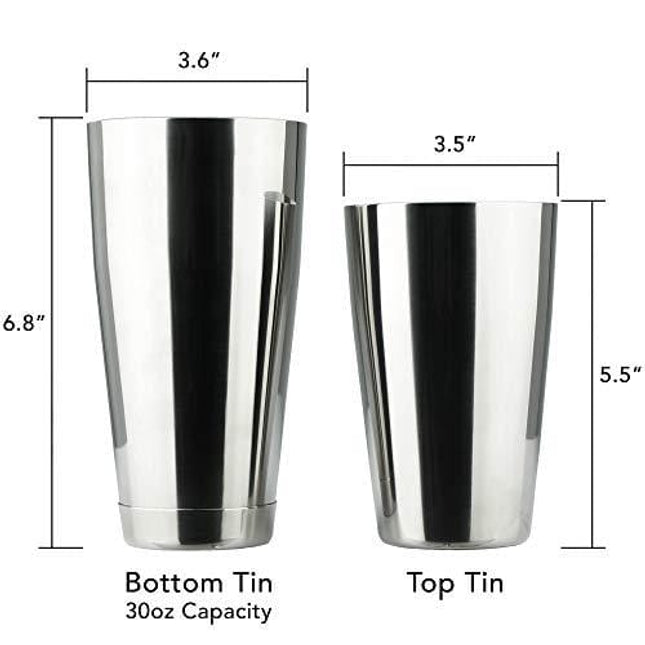BOSTON SHAKER


PG PG Boston Cocktail Kit - 4PC Premium Stainless Steel Shaker Set - 30oz Gloss Finish 2-Piece Shaker with Cocktail Strainer and Double Jigger
Brand: PGColor: SilverFeatures: MIXOLOGY HOME MASTERY: Everything you need to have at home for making any drinks. Only the PG Boston set comes with all bartender’s needs. PERFECT POUR: Forget about messing drinks up. PG mixology accessories include 30oz 2-Piece Boston Shaker with Cocktail Strainer and Double Jigger ANTI-RUST STAINLESS STEEL: This bar kit is popularly used in bars and restaurants because it is made from thick, smooth Food Grade 304 Stainless Steel – Anti Rust and dishwasher safe! CHRISTMAS DREAM GIFT: A perfect gift for any professional bartender or cocktail enthusiast on any occasion. No matter the recipient, we are sure that this mixologist gift will be remembered for years! This PG Boston Kit comes with a lifetime assistance and customer support. You are guaranteed to get the best quality from us ALWAYS! model number: 162446Details: 4-Piece Boston Cocktail Shaker Bar Set, 18/8 Stainless Steel, 30oz 2-Piece Shaker with Cocktail Strainer and Double JiggerEAN: 3193764162446Package Dimensions: 7.8 x 4.5 x 4.3 inches
$ 75.99$ 68.49
The Boston shaker is a preferred choice among professional bartenders because it is more versatile and can accommodate a larger volume of ingredients compared to other types of shakers. Additionally, the glass or tin used in the Boston shaker can also be used for other purposes, such as stirring or measuring ingredients.
What is the difference between a Boston shaker and a cocktail shaker?
A Boston shaker is a type of cocktail shaker, and the main difference between a Boston shaker and other types of cocktail shakers is the design. A Boston shaker consists of two parts: a metal shaker tin and a mixing glass or smaller metal tin, which are used together to create a seal and shake the ingredients.
Why is it called a Boston shaker?
The exact origin of the name "Boston shaker" is unclear, but it is believed to have originated in the early 1900s in Boston, Massachusetts. One theory suggests that it was named after the Boston hotel where it was first used, while another theory suggests that it was named after the Boston area bartenders who popularized its use.


















